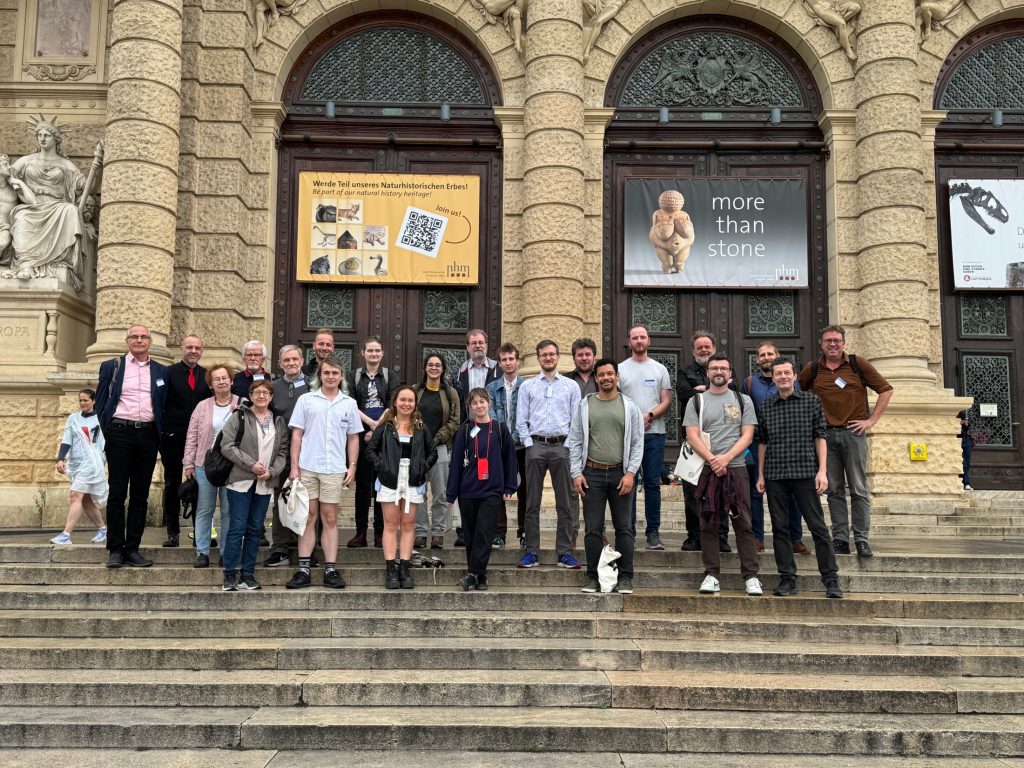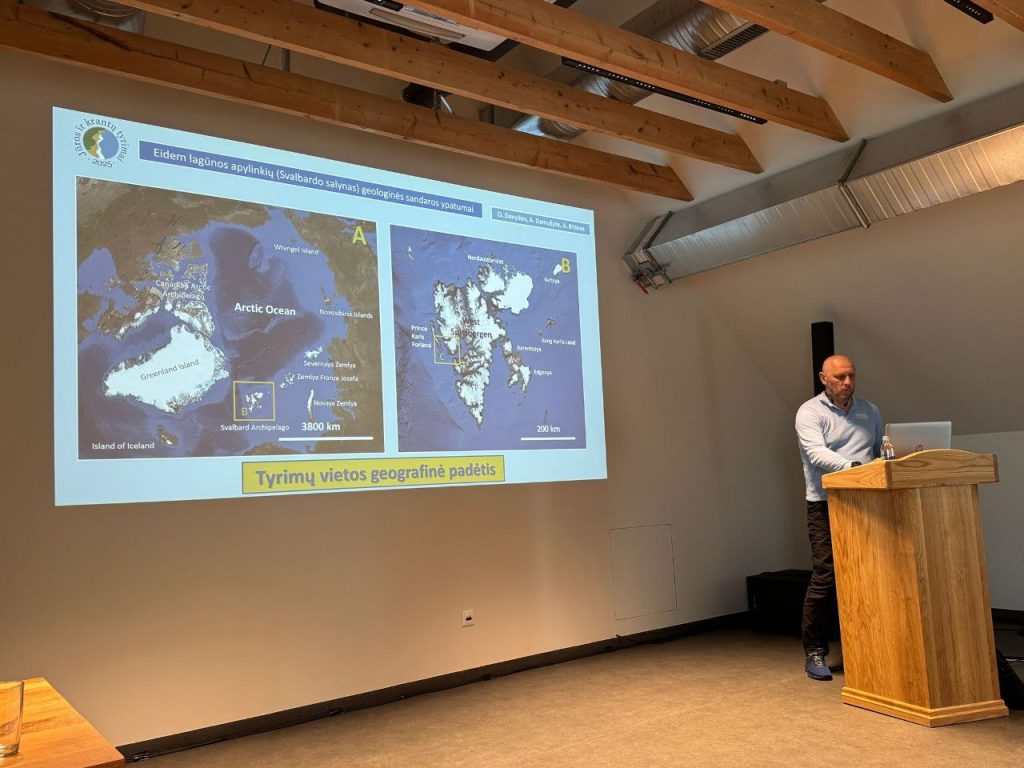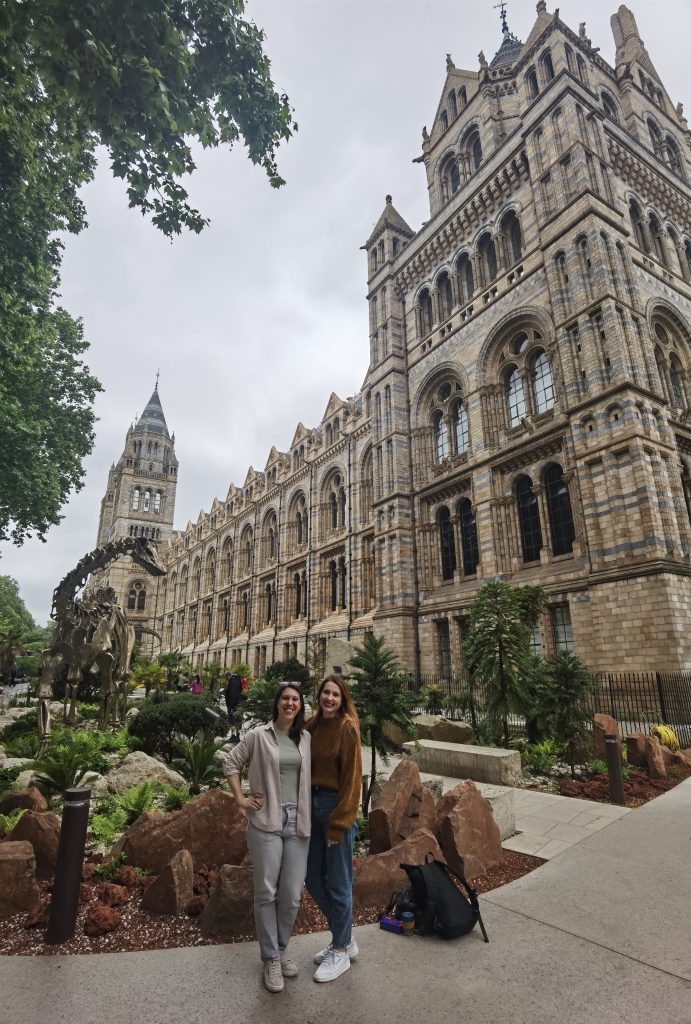For more information
2025.05.30
2025.05.30
For more information
2025.05.26
Aukštumala – Arts, Science and Story
International Field Symposium
31 May – 2 June 2025
Aukštumala raised bog and Aukštumalės Krantas rural tourism homestead
Aukštumalos St. 4, Šyšgiriai, Šilutė district, Lithuania
Geographical coordinates: 55.36952, 21.362204 (WGS 84)
Languages: Lithuanian and English
(translation service provided)
Dear Colleagues,
On 31 May – 2 June, you are invited to the AUKŠTUMALA – ARTS, SCIENCE AND STORY field symposium under the international project “WETBEINGS. Aukštumala – peatland organisms, tales and troubles“.
The World Peatland Day will be celebrated on 2 June. In support of the global public concern for the fate of bogs and peatlands (Venice Agreement, 2 June 2022), we invite you to the Aukštumala raised bog, Nemunas Delta, where the WETBEINGS project symposium will take place.
“WETBEINGS. Aukštumala – Arts, Science and Story” is an international symposium in the shelter of Aukštumala, inviting to experience the raised bog as a living archive of nature, a complex chronicle of the relationship between nature and man – a space where all kinds of mysteries and experiences are embodied and environmental and social threads intertwine. Here, human beings, beings of natural and supernatural origin, merge with the bog – its past, present and future, opening up new layers of knowledge. The world’s first modern scientific study of raised bogs, a monograph on raised bogs by a Prussian botanist Carl Albert Weber (1902), was the inspiration for the WETBEINGS project and for the birth of this symposium.
WETBEINGS invites to listen to the voices of water, moss and memory. During the symposium, participants will engage in art workshops, guided tours, talks, performances and even… ceremonies, explore the past and ecological memory of the raised bog, the practices of protection and restoration of the environment and cultural objects, and the natural and social significance of wetland ecosystems.
Advance registration required
Registration form is available here: https://forms.gle/PswsfGHCbzcLwrYV7
You can participate in one, several or all parts of the programme.
We can accept a maximum of 50 participants.
Your registration will be confirmed by the Organising Committee by personal email by 28 May at the latest.
We invite you to join the WETBEINGS community.
For the preliminary programme and a description of the project in Lithuanian, see:
https://www.pelkiufondas.lt/post/wetbeings-tarptautinis-simpoziumas-2025
https://www.pelkiufondas.lt/wetbeings
For the programme and a description of the project in English, see:
https://www.sensingpeat.net/projects/wetbeings-online-meetings
https://www.sensingpeat.net/projects/wetbeings%3A-auk%C5%A1tumala-arts%2C-science-%26-story-field-symposium–
We look forward to welcoming you in Aukštumala!
ORGANIZERS:
Arts and research platform Sensing Peat (Greifswald, Germany) at Michael Succov Foundation (partner of the Greifswald Mire Centre),
VšĮ Foundation for Peatland Conservation and Restoration (vilnius, Lithuania) in cooperation with Allianz Foundation (Germany) and project partners.
WETBEINGS is supported by:
Andrea von Braun Foundation (Germany)
Administration of Lithuania Minor Protected Areas (Lithuania)
Nemunas Delta Regional Park (Lithuania)
2025.05.23
Dr. Michal Šujan from Laboratory of Quaternary Research attended RCMNS Interim Colloquium 2025, which took place on 3rd to 5th of May in Vienna at Naturhistorisches Museum Wien. The event was entitled “Advances in Understanding the Neogene Mediterranean-Paratethyan System”, included geoscientists across Europe and was organized by Dr. Oleg Mandic and Dr. Mathias Harzhauser.
As the latest developments from his CosmoLith postdoctoral project, M. Šujan presented the investigation of glacial isostatic adjustment as a potential driver of river network reorganization in the Early Pleistocene of the present-day Lithuania. This exciting idea is being developed thanks to the modeling done by Holger Steffen (Lantmäteriet, Sweden). Laura Gedminienė (LQR) and Marianna Kováčová (Comenius University Bratislava) provided a palynological insight, as a valuable piece in the changing environment puzzle.
Additionally, M. Šujan shared new findings on the application of authigenic 10Be/9Be dating to the chronostratigraphy of the southern Pannonian Basin System. The new data come from Croatia, through collaboration with Marko Špelić, Marijan Kovacic, Viktória Baranyi, Tomislav Kurečić and Ivica Pavičić, and from Serbia, thanks to cooperation with Dejan Radivojevic and Dejan Prelevic.
The conference concluded with an insightful field trip to the Sopron-Eisenstadt Basin (Austria and Hungary), focusing mainly on the Badenian and Sarmatian (s.s.) stages of the Central Paratethys. The field trip was full of engaging discussions along with inspiring paleoenvironmental storytelling provided by the guide Mathias Harzhauser.

On 22 May 2025, an inter-institutional scientific conference “Advances in Natural Sciences: Trends, Methods and Solutions” was held at Nature Research Centre (NRC), Vilnius, bringing together young and experienced scientists from NRC, Vytautas Magnus University and Innovative Medicine Centre.
During the opening of the event, Prof. Dr. Sigitas Podėnas, Director of NRC, and Prof. Dr. Algimantas Paulauskas, Director of the Research Institute of Natural and Technological Sciences, VMU, made the welcoming speeches, highlighting the importance of interdisciplinary cooperation and relevance of research in contemporary society.
The conference featured 23 scientific presentations divided into four sessions. The presentations covered topics ranging from cancer cell research, the role of microbiota in disease management, the mechanisms of neurological disorders, parasitic organisms, plant stress response and biotechnological innovations in medicine.
Each session was followed by lively discussions, general conclusions and prospects of further cooperation opportunities.
We thank all participants, speakers and partners for their meaningful sharing, scientific curiosity and lively community pulse!
2025.05.21
On 14-16 May, a group of scientists from the Laboratory of Quaternary Research and Laboratory of Geoenvironmental Research, Albertas Bitinas, Oleksiy Davydov and Ričardas Taraškevičius, participated in the 17th National Marine Science and Technology Conference “SEA AND COASRT RESEARCH 2025” (Juodkrantė, Curonian Spit National Park Visitors Centre), organized by Marine Research Institute, Klaipėda University.
The following presentations were made by the Centre’s scientists:
More information is available at:
https://krantai.ku.lt/uploads/documents/files/2025_J%C5%ABros%20ir%20krant%C5%B3%20tyrimai.pdf

Photo: Oleksiy Davydov’s presentation
On 4-8 May, scientists from NRC Laboratory of Algology and Microbial Ecology, Dr. Judita Koreivienė, Dr. Jūratė Kasperovičienė, Dr. Jūratė Karosienė, and Dr. Ričardas Paškauskas, participated in the 13th International Conference on Toxic Cyanobacteria held in Chania, Crete, Greece. More information is available at: https://ictc13.gr/).
This conference is a major global event bringing together scientists, researchers and environmental experts working on the ecology of cyanobacteria, biosynthesis of cyanotoxins, their impact on the environment and human health, as well as pursuing molecular and biochemical research. NRC scientists presented their latest research results, shared their experiences with the international community and increased knowledge on the dynamics of these micro-organisms in the context of climate change. They also took part in COST Action CYANOACTION working group discussions on the project’s deliverables.
Such conferences are not only an opportunity to share knowledge and start new international collaborations, but also to inspire new ideas.
On 20 May 2025, elections to NRC Scientific Council took place. According to the data of the Elections Commission, 195 voters were eligible to vote on the elections day, and 157 voters took part in the elections.
The NRC Scientific Council is composed of 15 members elected for a five-year term. Of these, 11 are elected by secret ballot by NRC staff, and 4 are delegated from other institutions.
Eleven candidates who were nominated by NRC and received the highest number of votes were elected to the new NRC Scientific Council (list in alphabetical order):
Prof. Dr. Kęstutis Arbačiauskas, Chief Researcher, Laboratory of Evolutionary Ecology of Hydrobiontrs
Dr. Rasa Bernotienė, Senior Researcher, Laboratory of Entomology
Assoc. Prof. Dr. Eduardas Budrys, Chief Researcher, Laboratory of Chemical and Behavioural Ecology
Dr. Sigita Jurkonienė, Chief Researcher, Laboratory of Plant Physiology
Dr. Vaidas Palinauskas, Chief Researcher, B. Šivickis Laboratory of Parasitology
Prof. Dr. Elena Servienė, Chief Researcher, Laboratory of Genetics
Dr. Miglė Stančikaitė, Chief Researcher, Laboratory of Quaternary Research
Dr. Vaida Šeirienė, Senior Researcher, Laboratory of Quaternary Research
Dr. Domas Uogintas, Senior Researcher, Laboratory of Flora and Geobotany
Academician Dr. habil. Gediminas Valkiūnas, , Chief Researcher, B. Šivickis Laboratory of Parasitology
Dr. Tomas Virbickas, Senior Researcher, Laboratory of Fish Ecology
The new NRC Scientific Council also includes the following four members delegated by institutions, companies and organisations interested in the achievement of NRC’s objectives and functions:
Jūratė Vlaščenkienė, Chief Specialist, Science Division, Ministry of Education, Science and Sport of the Republic of Lithuania
Ramūnas Krugelis, Vice-Minister, Ministry of Environment of the Republic of Lithuania
Dr. Arvydas Lubys, Director of Life Sciences Centre, Vilnius University
Prof. Dr. Algimantas Paulauskas, Director of the Research Institute of Natural and Technological Sciences, Vytautas Magnus University
Congratulations to the newly elected NRC Scientific Council, and best wishes for successful work!
2025.05.20
On 19 May 2025, NRC Conference Hall hosted a presentation on the project of translocation of a globally threatened Aquatic Warbler (Acrocephalus paludicola) and its continuity in Lithuania.
The event was organised by Baltic Environmental Forum. Its main purpose was to inform about the planned implementation of the second phase of translocation and about new objectives, including the recovery of a small Aquatic Warbler population in the Žuvintas Biosphere Reserve.
The following issues were discussed:
The event demonstrated that close cooperation between scientists, NGOs and authorities of protected areas could be a key factor in protecting species from extinction.
We are happy to be a space for dialogue on biodiversity conservation and to promote knowledge-based conservation solutions.
Today is World Metrology Day and World Bee Day, two important occasions which remind us how closely our daily lives are linked to precise measurements and wildlife.
Metrology is the science of measurements and measuring instruments. It ensures precision in temperature, length, mass and complex physical processes, which is needed in science, industry, health care and environmental monitoring.
On 20 May 1875, 17 countries signed the Metro Convention, which formed the basis for the International System of Units (SI). Today, 51 countries have signed the Convention. World Metrology Day is celebrated annually to commemorate this event.
Today we also celebrate World Bee Day to highlight the importance of these invaluable pollinators to our ecosystems and food production.
Researchers of the Nature Research Centre are studying how climate change is affecting relationship between insects and plants. For example, changes in temperature can cause mismatches between bee activity and plant flowering periods, affecting both bee survival and plant reproduction.
Recent studies have shown that wild bees are up to 4 times more diverse in natural grasslands than in intensively farmed fields.
Dr Laima Blažytė-Čereškienė, Head of NRC Laboratory of Chemical and Behavioural Ecology, has been investigating bee health and behaviour for many years and coordinates international projects such as INSIGNIA-EU, which uses bees as bioindicators to assess environmental pollution. She also leads projects to conserve the native dark bee (Apis mellifera mellifera) in Lithuania.
These two dates remind us that our ability to understand and protect the world depends directly on scientific progress – both precision in measurements and species conservation.
2025.05.19
This spring, Dr Darya Dankina, Researcher at the Laboratory of Bedrock Geology, was invited to join one of the most prestigious and oldest palaeontological associations in Great Britain, The Palaeontological Association (PalAss, https://www.palass.org), as a council member and public relations officer. Daria has just returned from her first official meeting at the Natural History Museum in London.
